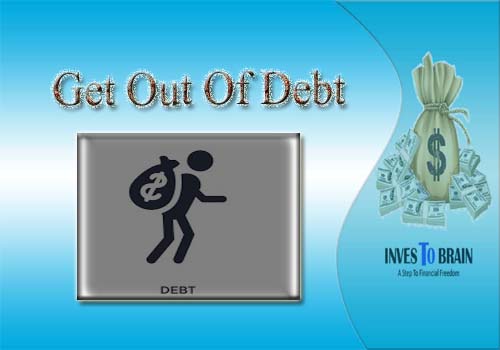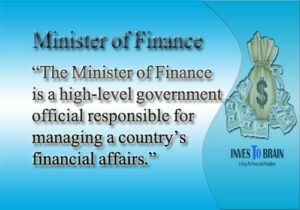How to get out of debt fast with low income is the main question, there are various ways how to get out of debt fast with low income.
Getting out of debt fast is a financial goal that many people have. It refers to the process of paying off all of your debts as quickly as possible so that you can free up your income and become financially stable.

Debt can be a significant burden, and it can be challenging to get out of if you don’t have a plan.
Strategies To Get Out Of Debt Fast
There are several strategies that you can use to get out of debt fast, depending on your financial situation and personal preferences. Some of the most common methods include:
- Creating a budget: Start by tracking your income and expenses, and create a budget that allows you to allocate more money towards paying off your debts each month.
- Increasing your income: Look for ways to increase your income, such as taking on a part-time job, selling unused items, or starting a side hustle.
- Prioritizing your debts: Focus on paying off your debts with the highest interest rates first, as these are the ones that will cost you the most in the long run.
- Negotiating with your creditors: You may be able to negotiate a lower interest rate or payment plan with your creditors, which can make it easier to pay off your debts.
- Consolidating your debts: Consider consolidating your debts into a single loan with a lower interest rate, which can make it easier to manage your payments and save you money in the long run.
Overall, getting out of debt fast requires a combination of discipline, determination, and smart financial planning. By following these strategies and staying focused on your goal, you can achieve financial freedom and enjoy a more stable and secure future.
Creating a budget
Creating a budget is an essential step toward getting out of debt fast. It helps you keep track of your income and expenses, so you can identify areas where you can cut back and allocate more money toward paying off your debts. Here are the steps to create a budget:
- Calculate your income: Add up all of your sources of income, including your salary, any freelance work, and any passive income you receive.
- List your expenses: Make a list of all your regular monthly expenses, such as rent/mortgage, utilities, transportation, groceries, and any other bills you pay regularly. It’s important to include everything, no matter how small.
- Identify areas where you can cut back: Look for areas where you can reduce your spending, such as eating out less, canceling subscriptions you don’t use, or finding ways to save on utilities.
- Allocate money towards your debts: Once you’ve identified areas where you can cut back, allocate more money towards paying off your debts. You can start by paying off your debts with the highest interest rates first.
- Monitor your progress: Keep track of your spending and your progress toward paying off your debts. Make adjustments to your budget as needed to ensure you’re staying on track.
Remember, creating a budget is just the first step towards getting out of debt fast. It’s important to stick to your budget and make smart financial decisions to ensure you achieve your goal.
Increasing your income
Increasing your income is another important step towards getting out of debt fast. Here are some strategies you can use to increase your income:
- Look for a higher-paying job: Consider looking for a higher-paying job that matches your skills and experience. You can also negotiate a raise with your current employer if you feel you deserve one.
- Take on a part-time job: You can take on a part-time job in addition to your full-time job to earn extra income. Look for jobs that are flexible and can work around your schedule.
- Sell unused items: Sell any items that you don’t need or use anymore. You can use online marketplaces like eBay or Facebook Marketplace to sell your items.
- Start a side hustle: Consider starting a side hustle or a small business that can earn you extra income. For example, you can start a freelance business, a pet-sitting service, or a tutoring service.
- Rent out a spare room: If you have a spare room, consider renting it out to a tenant. This can be a good source of passive income.
Increasing your income can help you pay off your debts faster and reach your financial goals. However, it’s important to make sure that any additional income is used to pay off your debts, rather than increase your spending.
Prioritizing your debts
Prioritizing your debts is an important step towards getting out of debt fast. By focusing on paying off your debts with the highest interest rates first, you can save money in the long run and reduce the amount of interest you pay. Here are the steps to prioritize your debts:
- Make a list of your debts: Make a list of all your debts, including credit cards, loans, and any other debts you owe.
- Identify the interest rates: Identify the interest rates for each of your debts. Sort the list from highest to lowest interest rate.
- Focus on high-interest debts: Focus on paying off your debts with the highest interest rates first. This will save you the most money in the long run.
- Make minimum payments on other debts: While you focus on paying off your high-interest debts, make the minimum payments on your other debts to avoid late fees and penalties.
- Snowball your payments: Once you’ve paid off your high-interest debts, snowball your payments towards the next highest-interest-rate debt. This means taking the money you were paying towards the first debt and adding it to the payments for the next debt on the list.
Prioritizing your debts can help you pay off your debts faster and save money in the long run. It’s important to stay disciplined and focus on your goal of becoming debt-free.
Negotiating with your creditors
Negotiating with your creditors is another strategy that can help you get out of debt fast. Here are some tips for negotiating with your creditors:
- Be proactive: Don’t wait until you’re behind on payments to negotiate with your creditors. Contact them as soon as possible to explain your situation and discuss your options.
- Be honest: Be honest about your financial situation and your ability to make payments. Your creditors may be more willing to work with you if they understand your situation.
- Offer a payment plan: Offer to pay a portion of your debt each month, even if it’s less than the minimum payment. Your creditors may be willing to work with you if they see that you’re making an effort to pay off your debt.
- Ask for a lower interest rate: If you have high-interest rates on your debts, ask your creditors if they can lower the rate. This can help reduce the amount of interest you pay over time.
- Consider a debt settlement: If you’re unable to make payments on your debts, consider negotiating a debt settlement. This involves offering a lump sum payment to your creditors to settle your debt for less than the full amount owed.
Negotiating with your creditors can be a challenging process, but it can be worth it if it helps you get out of debt faster. It’s important to be persistent and follow up with your creditors to ensure that any agreements are put in writing and followed through on.
Consolidating your debts
Consolidating your debts is another strategy that can help you get out of debt fast. Debt consolidation involves taking out a new loan to pay off multiple debts, leaving you with a single loan to manage. Here are some ways to consolidate your debts:
- Balance transfer credit card: You can transfer your high-interest credit card balances to a new credit card with a lower interest rate. This can help you save money on interest and make it easier to manage your payments.
- Personal loan: You can take out a personal loan to pay off your debts. This can help you simplify your payments and potentially lower your interest rate.
- Home equity loan: If you own a home, you can take out a home equity loan to pay off your debts. This involves using your home as collateral and can potentially lower your interest rate.
- 401(k) loan: You can borrow money from your 401(k) to pay off your debts. This can be risky, as you’ll need to pay the loan back with interest and may face penalties if you’re unable to repay it.
Consolidating your debts can help you simplify your payments and potentially lower your interest rates, making it easier to pay off your debts faster. However, it’s important to choose a consolidation method that works for your situation and to avoid taking on new debt while you’re paying off your existing debts.
Bottom Line
Getting out of debt fast with a low income can be challenging, but it’s not impossible. By creating a budget, increasing your income, prioritizing your debts, negotiating with your creditors, and consolidating your debts, you can take control of your finances and work towards becoming debt-free.
It’s important to stay disciplined and committed to your goals, even when it’s difficult. With time, effort, and persistence, you can achieve financial freedom and enjoy the peace of mind that comes with being debt-free.
Interested to learn more about » Get Out Of Debt Fast With Low Income Click on the Link.
» Read the more related article…

